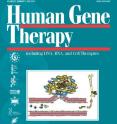Innovation and current status of prostate cancer gene therapy featured in Human Gene Therapy
Improved delivery methods and better testing systems are needed to advance promising gene therapy strategies for treating prostate cancer, according to a series of review articles in Human Gene Therapy, a peer-reviewed journal published by Mary Ann Liebert, Inc (www.liebertpub.com). The articles and an accompanying editorial are available free online at www.liebertpub.com/hum Prostate cancer is one of the most common types of cancer affecting men in the U.S. and is the second leading cause of cancer death among men, after lung cancer. Among the most recent treatment strategies being tested against prostate cancer is gene therapy, in which a gene product intended to destroy the tumor cells or to stimulate the patient's immune system to fight the cancer is delivered to the tumor, typically using a viral delivery vector. The most common approach uses an adenovirus as the delivery vector and has been shown to be quite safe.
However, it is still not clear which genes, viral vectors, or strategies are optimal to ensure targeted delivery of the genes to the tumor cells, and uptake by the tumor, to achieve the most effective, most potent, and safest treatment that can lead to a cure for prostate cancer. Stefan Kochanek, from the University of Ulm, Germany, and Bernd Gänsbacher, from the Technical University of Munich, Germany, present their views on the need for developing and testing new and innovative approaches in the editorial entitled, "Prostate Cancer Gene Therapy: Attempts to Innovate."
Three review articles in the issue explore various aspects of this evolving field and advances that will make it possible to translate new gene therapy techniques from research to testing in human patients. Ellen Schenk and colleagues from Erasmus Medical Center, The Netherlands, and Uppsala University, Sweden, representing the GIANT FP6 Consortium, review current clinical experiences and progress toward the development of adenovirus-mediated gene therapy in the review article entitled, "Clinical Adenoviral Gene Therapy for Prostate Cancer."
Norman Maitland and coauthors from University of York, U.K., Uppsala University, Sweden, and Erasmus Medical Center, The Netherlands, on behalf of the GIANT FP6 Consortium, emphasize the need for laboratory models that more closely mirror human tissues in the article entitled, "Gene Transfer Vectors Targeted to Human Prostate Cancer: Do We Need Better Preclinical Testing Systems?"
Jeroen de Vrij and colleagues from Leiden University Medical Center and Erasmus Medical Center, The Netherlands, and from Got-a-Gene, in Kullavik, Sweden, also representing the GIANT FP6 Consortium, summarize recent advances in adenovirus technology and present state-of-the-art and future prospects for adenoviral vector-based gene therapy in the article entitled, "Adenovirus-Derived Vectors for Prostate Cancer Gene Therapy."
"Achievement of the full potential of gene transfer technologies will depend upon understanding the basic concepts of carcinogenesis in the prostate," says Bernd Gänsbacher, MD, PhD, Deputy Editor of Human Gene Therapy and Director, Institute for Experimental Oncology, Technical University of Munich, Germany.
Source: Mary Ann Liebert, Inc./Genetic Engineering News
Other sources
- Innovation and current status of prostate cancer gene therapy featured in Human Gene Therapyfrom PhysorgTue, 13 Jul 2010, 15:15:21 UTC
- Innovation and current status of prostate cancer gene therapy featured in Human Gene Therapyfrom Science BlogTue, 13 Jul 2010, 15:14:27 UTC
